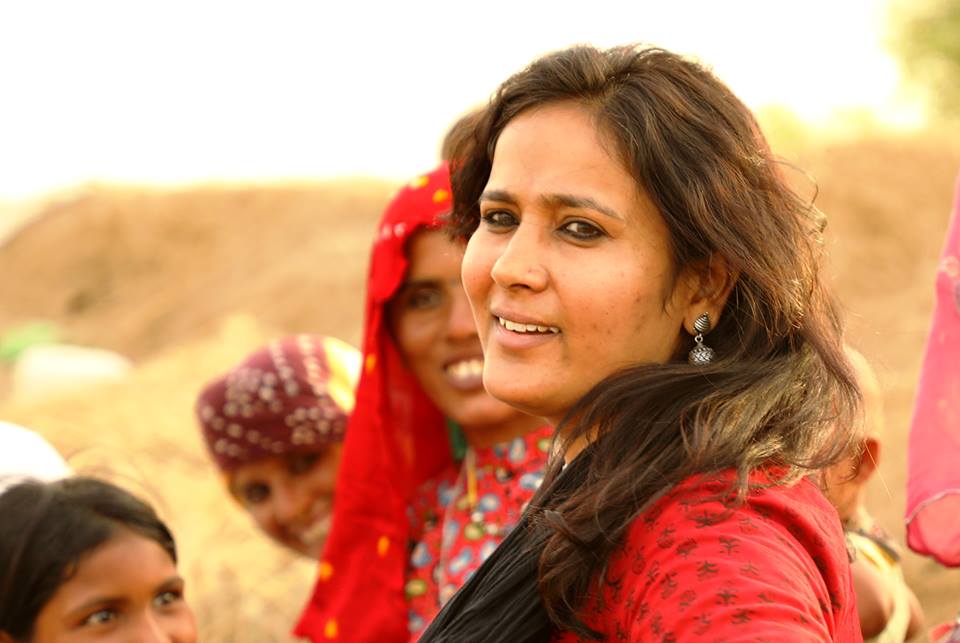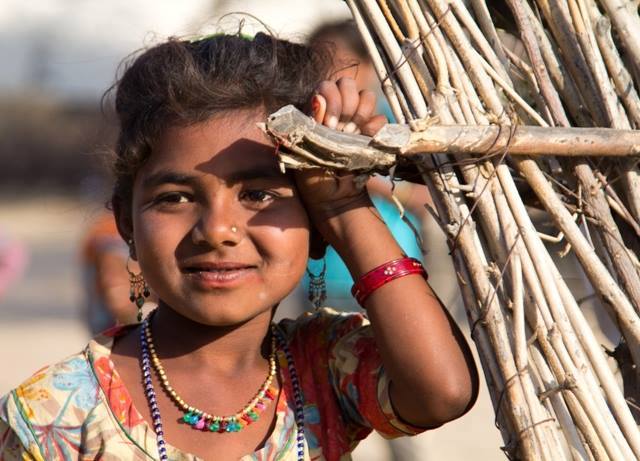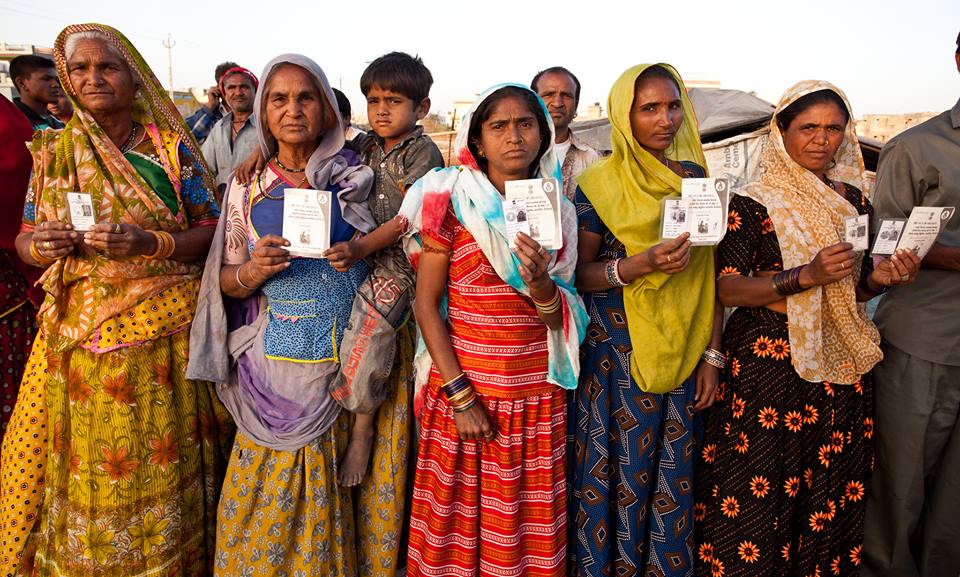Meet Mittal Patel, Who Skipped Her IAS Dreams to Uplift India’s ‘Criminal’ Tribes
“No government was giving them the right solutions. Their problems were much more complex than the government providing them with houses in some welfare scheme,” she explains.

Mittal Patel grew up in the Gujarati village of Shankhalpur, with the dream of becoming an IAS officer. However, life had different plans for her.
While she shifted to Ahmedabad to study for the UPSC exams, she eventually found herself studying journalism at Gujarat Vidyapith, where she underwent a life-changing experience.

As part of her program, she undertook a two-month fellowship in Charkha, where one evening, she visited the residences of the tribal sugarcane workers.
“I went there with the idea of staying with them. What I saw was shocking. Their tents were made of blue plastic, in which one could barely stand up. The contractor there didn’t want to talk to me, thinking I was a journalist who would write stories. That was when I saw a man, who came crying to him. He said two men had abducted his wife and had thrown his child into the thorny bushes to the side of the road,” recalls Mittal.
Mittal vividly remembers the fear she felt that day. Taking shelter in the home of one of the ladies in the community, she prayed for dawn to come. What shocked her even more than the gruesome event was that the next morning life went on, without even a single FIR or police complaint. It was as if the incident had never happened.
She decided to continue working with tribes, through an NGO, the Janpath Organisation. It was only when the NGO decided to do a study on the nomadic and denotified tribes of India, that Mittal’s curiosity was piqued.
She remembers, “I used to see Vadis and snake charmers throughout my childhood. They used to entertain us with their performances. But for a long time, I had not seen them. Where had they all gone?”
This was the beginning of her search for the nomadic and denotified tribes of India.
According to Mittal, about 60 lakh of India’s population, is a part of nomadic (NT) and denotified tribes (DNT). Many of them still travel from place to place to earn their living in various professions, from snake charming to singing and dancing. It has been the way for several years.
During the era of the British rule, 198 tribes were classified as “criminal,” through the Criminal Tribes Act of 1871. Although the act was repealed, the misconceptions about these tribes still exist. They form close to 10 percent of India’s population and are still struggling for their basic rights.
Mittal’s search for these nomadic tribes led her to the Dafer community, in Surendranagar. People warned her against it, as they were seen as criminals but she was determined to meet them. It was when she was taking notes, during a conversation with the Sarpanch, that she heard a child crying. It disturbed her, and she asked the mother to feed the child.
“The mother looked at me angrily and said, ‘I haven’t eaten in days, how will I feed my child?’ This left a long-lasting impression on my mind. I wanted to help them,” says Mittal.

Mittal began attending the weddings and festive occasions of the Dafer people, to learn more about their culture and gain their trust. She also met representatives and leaders of the community. Gradually, she began to learn of the complex problems and issues faced by stateless tribes and denotified communities.
“No government was giving them the right solutions. Their problems were much more complex than the government providing them with houses in some welfare scheme,” she explains.
She then decided to take matters in her own hands, forming Vicharta Samuday Samarthan Manch (VSSM) in 2006, an organisation with the aim of advocating for the basic rights of nomadic and denotified tribes in Gujarat.
Today, the VSSM has 30 field officers who tirelessly work to get these nomadic tribes access to government schemes, identification cards, ration cards, housing and education.

“Because their lifestyle meant that they never had a permanent address, it was difficult to obtain documents for them. We have managed to give around 60,000 individuals a Voter ID, and this number will hopefully rise in the future,” says Mittal.
This is just the beginning of the organisation’s several achievements. The state is now recognising that nomadic and denotified tribes form a significant part of the population, and were overlooked in the Census. Residential plots were obtained for over 1000 families, while the process of obtaining ration cards was made easier.
You may also like: How This Organisation Is Giving India’s Tribal Musicians a New Lease of Life
VSSM has also helped several families obtain interest-free loans, to start and manage their own businesses, creating professions which will last and help families become self-sufficient.
“More than that, we are trying to get society to be more sensitive to the plight of this community. We want them to be treated with respect, and unfortunately in many places, they are still treated like criminals”, she says.
The work that VSSM does comes with its own set of challenges. Mittal explains the difficulties she continues to face in trying to get others to understand the problems of nomadic tribes and denotified tribes. Many of the tribal people themselves do not understand the importance of government schemes and how their problems will be solved. However, she is confident that she, along with her organisation, will be able to create a significant impact.
She adds, “I know our goals cannot be achieved overnight. For me, these people are my extended family. I want them to lead lives that give them happiness. VSSM is committed to getting these people their basic rights, but more importantly, give them the license to fulfil their own dreams.”
Like this story? Or have something to share?
Write to us: [email protected]
Connect with us on Facebook and Twitter.
NEW: Click here to get positive news on WhatsApp!
If you found our stories insightful, informative, or even just enjoyable, we invite you to consider making a voluntary payment to support the work we do at The Better India. Your contribution helps us continue producing quality content that educates, inspires, and drives positive change.
Choose one of the payment options below for your contribution-
By paying for the stories you value, you directly contribute to sustaining our efforts focused on making a difference in the world. Together, let’s ensure that impactful stories continue to be told and shared, enriching lives and communities alike.
Thank you for your support. Here are some frequently asked questions you might find helpful to know why you are contributing?


This story made me
-
97
-
121
-
89
-
167













